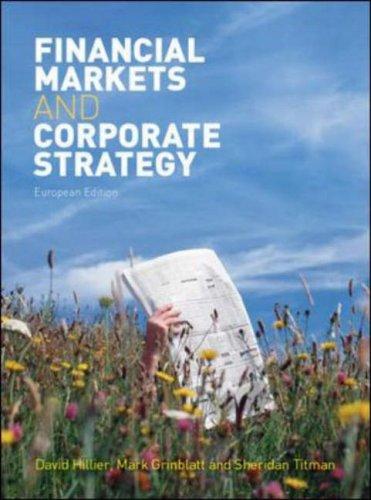In many instances, whether a cash flow occurs early or not is a decision of the issuer
Question:
In many instances, whether a cash flow occurs early or not is a decision of the issuer or holder of the derivative. One example of this is a callable bond, which is a bond that the issuing firm can buy back at a prespecified call price. Valuing a callable bond is complicated because the early call date is not known in advance—it depends on the future path followed by the underlying security. In these cases, it is necessary to compare the value of the security—
assuming it is held a while longer—with the value obtained from cash by calling the bond or prematurely exercising the call option. To solve these problems, you must work backward in the binomial tree to make the appropriate comparisons and find the nodes in the tree where intermediate cash flows occur.
Suppose that in the absence of a call, a callable corporate bond with a call price of $100 plus accrued interest has cash flows identical to those of the bond in exercise 7.3. (In this case, accrued interest is the $5 coupon if it is called cum-coupon at the intermediate date and 0 if it is called excoupon.)
What is the optimal call policy of the issuing firm, assuming that the firm is trying to maximize shareholder wealth? What is the value of the callable bond? Hint: Keep in mind that maximizing shareholder wealth is the same as minimizing the value of the bond.
AppendixLO1
Step by Step Answer:

Financial Markets And Corporate Strategy
ISBN: 9780077119027
1st Edition
Authors: David Hillier, Mark Grinblatt, Sheridan Titman





